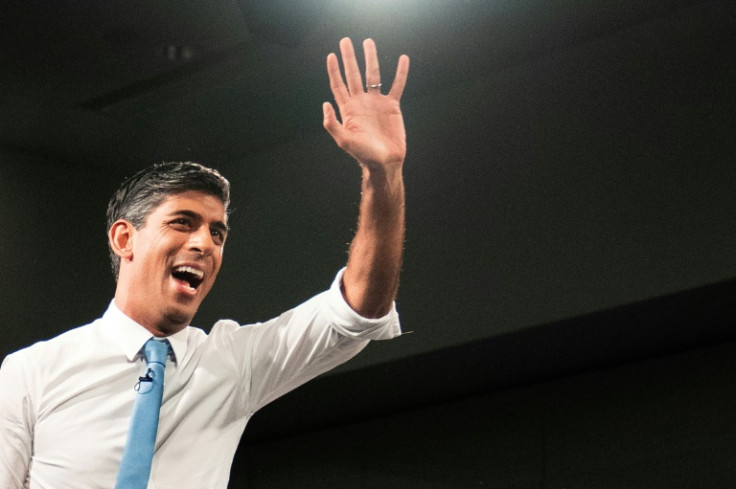Sunak Confirms Northern Leg of HS2 Will Be Scrapped in Closing Speech
Sunak declared that this move would save 36 billion pounds, which he would reinvest in hundreds of other transport schemes across the country.

Rishi Sunak has confirmed the long-rumoured decision to scrap the northern leg of HS2.
Speaking on the final day of the Conservative Party Conference, the Prime Minister said that instead of completing the high-speed train line from Birmingham to Manchester, the project would end at London Euston.
Sunak declared that this move would save 36 billion pounds, which he would reinvest in hundreds of other transport schemes across the country.
Rumours of this decision have dominated much of the Tory Conference, overshadowing other policy announcements from Chancellor Jeremy Hunt and Home Secretary Suella Braverman.
When pressed to comment on the future of the HS2 project, in an interview yesterday with Beth Rigby, Sunak declined to say whether he had made up his mind, instead dismissing "speculation" and adding: "I approach all these things carefully, thoughtfully, rigorously."
But today, the Prime Minister left no doubt in his speech, claiming that HS2 was "the ultimate example of the old consensus", saying the cost had doubled and the "economic case" for the line had "massively weakened with the changes to business travel post-COVID".
"I say, to those who backed the project in the first place, the facts have changed. And the right thing to do when the facts change, is to have the courage to change direction," Sunak added.
"So I am ending this long-running saga. I am cancelling the rest of the HS2 project."
The HS2 line had been billed as an integral part of the government's "levelling up" strategy, to spur growth in the Midlands and the North. It would cut journey times, decongest local railways by removing intercity express services, and directly and indirectly lead to much job creation.
The decision to end it prematurely will no doubt be controversial – the move has already been opposed by a succession of senior Tories, including three former prime ministers — Boris Johnson, Theresa May and David Cameron. They have raised concerns that it will undermine the party's commitment to levelling up, with Johnson describing the plans as "insanity".
Mancunians "won't forget" how the government "treated the city", mayor Andy Burnham said last night.
Speaking at a hastily organised press conference outside the Central Library – yards from the entrance to the Conservative Party Conference at Manchester Central – the Greater Manchester Mayor said it was "no way to treat this city when you're in this city". "People in the North will be treated as second-class citizens - again? What a disgrace," the Labour MP added.
In a rare show of bipartisanship, Andy Burnham of Manchester was joined by Andy Street, Conservative mayor of the West Midlands, in universal condemnation. Street led a simmering revolt on the sidelines of the Conservative conference, accusing Sunak of "cancelling the future".
As well as the cancellation of HS2, Sunak made several other policy announcements in his speech earlier today.
These included introducing a British baccalaureate to allow pupils over 16 to study a wider range of subjects, and new tactics for making England smoke-free.
The prime minister told the Conservative party conference in Manchester he would merge A levels and technical T-levels into the brand new Advanced British Standard (ABS) to create "parity of esteem" between academic and technical subjects, with the aim of building the "best education system in the western world".
Teachers in "key subjects" will also receive special bonuses of up to £30,000, tax-free, over the first five years of their careers to "attract and retain" more people. "Our teachers do one of the most valuable jobs... and we should reward them for that," Sunak said.
The Prime Minister also declared that the age at which people can buy cigarettes and tobacco in England should rise by one year every year so that eventually no one can buy them.
Sunak said MPs were to be given a free vote in parliament on the issue.
Smoking rates have been falling since the 1970s. But there are still more than five million smokers in England and six million across the UK.
Currently, one in nine 18 to 24-year-olds smokes, according to the Office for National Statistics.
© Copyright IBTimes 2025. All rights reserved.






















